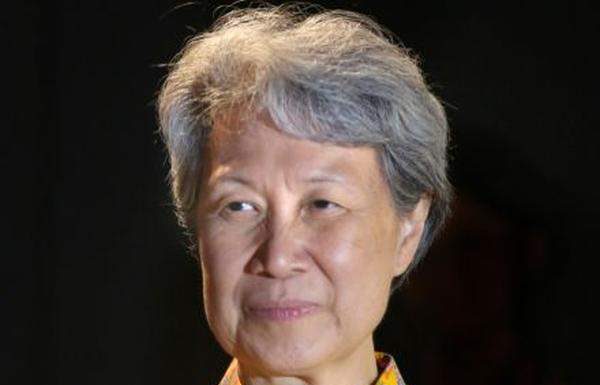Ho Ching wrote in a Facebook post on Sunday (Apr 24) what she believes is the best defence against scammers, posting a list that begins with “Don’t be greedy.”
Mdm Ho, 69, the wife of Prime Minister Lee Hsien Loong as well as chairperson of Temasek Trust, is a prolific social media commentator.
Here is her list of “our best defence against scammers.”
Mainly just this:
Don’t be greedy
Don’t be afraid
Don’t be intimidated
Stay calm
Keep cool.
She went on to enumerate the ways through which scammers hook people. Sometimes they try to tempt them with “claims of fantastic deals out of the blue – a lucky draw prize, a mystery box, a casino tip and so forth.”
Scammers also “often” intimidate individuals by posing as persons in authority such as police, MOH, or immigration officers “and make claims about a crime, a scam, a vaccine problem, a passport problem to try to scare us into not thinking calmly.”
Another modus, she added, is when scammers “appeal to our curiosity or desire to help – they pretend to be a friend in need, or wanting help to solve a crime.”
Mdm Ho also mentioned cases “when the real police showed up, and the scam victim would disbelieve the real police, and insisted that they are fake!
And they would disbelieve their own children, and would believe the stranger who pretends to be an international crime police officer!
What to do?”
She also shared an Apr 16 Facebook post from the Cyber Security Agency of Singapore which warned against cybercriminals who use “social engineering techniques to ‘hack’ the ‘human system’ – exploiting human emotions like fear, uncertainty, and curiosity.”
The post also warned people to not rush to act on an urgent-looking message from banks.
“Guard your emotions, or scammers might get the better of you!” reads a graphic accompanying the post.


Many in Singapore became victims of a phishing scam that targeted OCBC clients over the holidays in December of last year.
The scam affected 790 victims, with total losses reaching S$13.7 million.
Mdm Ho shared the story of one of the victims, a Mr John Tan, who in a Jan 15 Facebook post wrote that the scam wiped out their family’s life savings.
The ordeal started when his wife received “a strange message from OCBC, telling her someone was trying to access her account. It was the phising (sic) message, she clicked it”.
“We lost everything in 5 overseas transactions. I called the bank immediately, and they said that it had to be taken up by my wife, because she clicked the link”, Mr Tan added.
After the OCBC scam, agencies including the Accounting and Corporate Regulatory Authority shared tips on how to avoid being scammed, urging people to stay vigilant.




/TISG
ICYMI: Ho Ching shares story of OCBC scam victim, family lost their entire life’s savings

